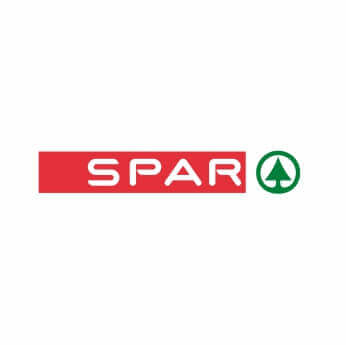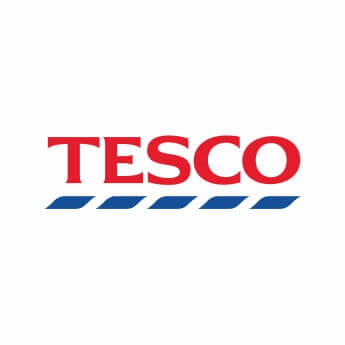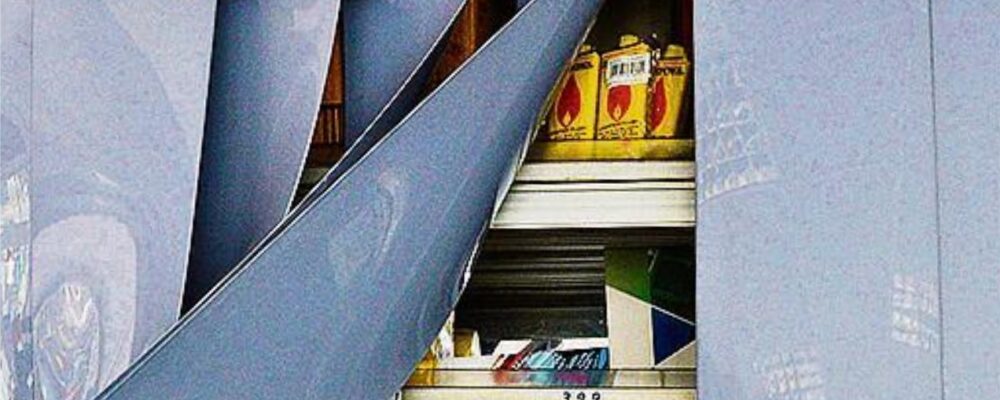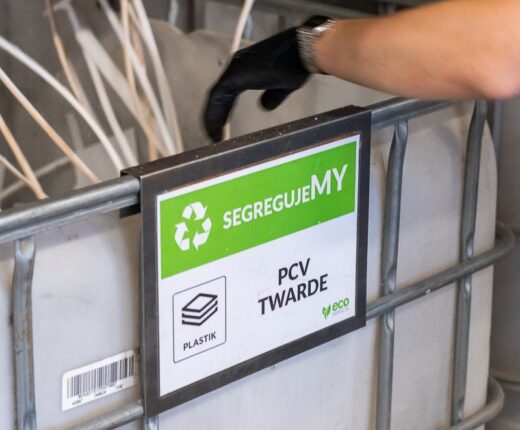What is the RDB (Retail Display Ban)?
Retail Display Ban (RDB), i.e., the ban on showing certain products in the store, is a reality in many European countries. Although so far, no restrictions of this type have been introduced in Poland, it can be expected that eventually this trend will appear here as well.
So, what is Retail Display Ban and where did it come from?
Retail Display Ban is a restriction imposed on certain categories of products sold in the retail trade. These restrictions relate to the visibility of such a product in the shop, as well as its promotion at the point of sale. This mostly concerns products that have a negative impact on health or are unsuitable for young people. Restricting their visibility in a shop to which everyone has access is precisely to protect the youngest from wanting to use them. It also involves other activities, such as requiring a license to purchase products and meeting certain criteria, such as age. These restrictions mostly apply to tobacco, alcohol, or erotic products.
Depending on the country and type of product, the restrictions may have different character. This could be banning advertising on the shop floor, using special packaging or shielding products from shoppers’ view.
Example of tobacco products
One of the product groups most often subject to restrictions are tobacco products. Colourful, slick packaging tempts young people, encouraging them to reach for nicotine. To counteract this, their visibility has started to be reduced. This action turned out to be effective, as shown by studies conducted by the Imperial College of London. Before the introduction of RDB, 57% of young smokers bought tobacco products in shops. After the ban, this number dropped to 40%.
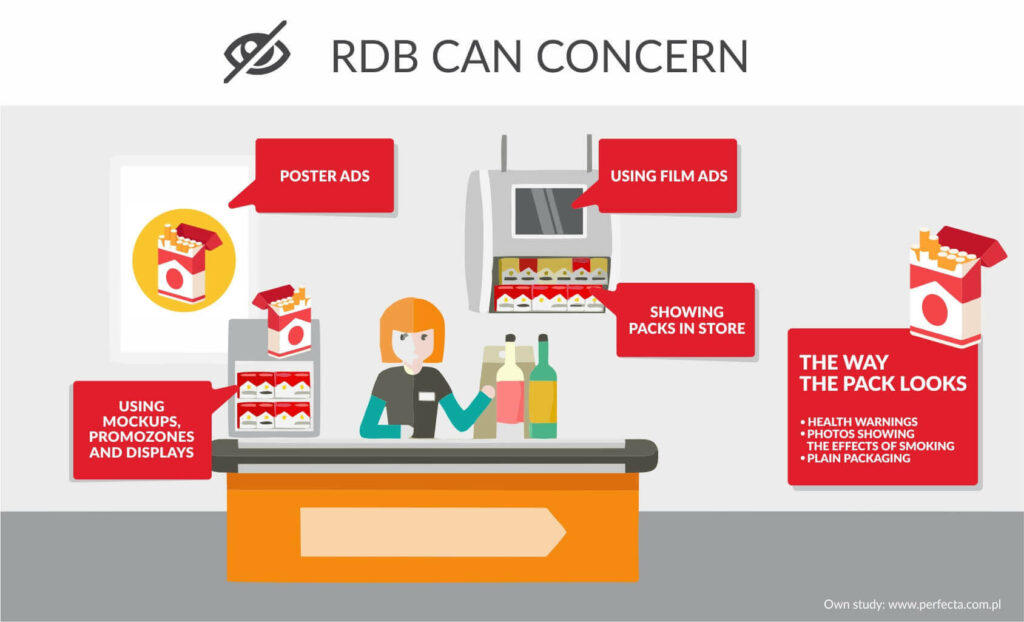
Australian research indicates that 25% of customers buy cigarettes on impulse, which is also an argument for limiting their visibility in store. It has also been proven that advertising tobacco products at points of sale increases sales by about 10%. It is therefore no surprise that an increasing number of countries are imposing restrictions on the promotion – and display – of cigarettes in stores.
The RDB situation in Europe using tobacco as an example.
European law does not provide for harmonized legislation on the visibility of cigarettes and tobacco products. Each member state has a free hand here. So far, Poland has limited itself to placing information on packaging the warnings of the harmful effects of tobacco use. 65% of the space on both sides of the package was allocated to them. (https://sip.lex.pl/akty-prawne/dzu-dziennik-ustaw/ochrona-zdrowia-przed-nastepstwami-uzywania-tytoniu-i-wyrobow-16797364)
On the map below we have indicated which form of restriction applies in each country – you can find out more about this on our dedicated page at www.tobaccodisplayban.eu
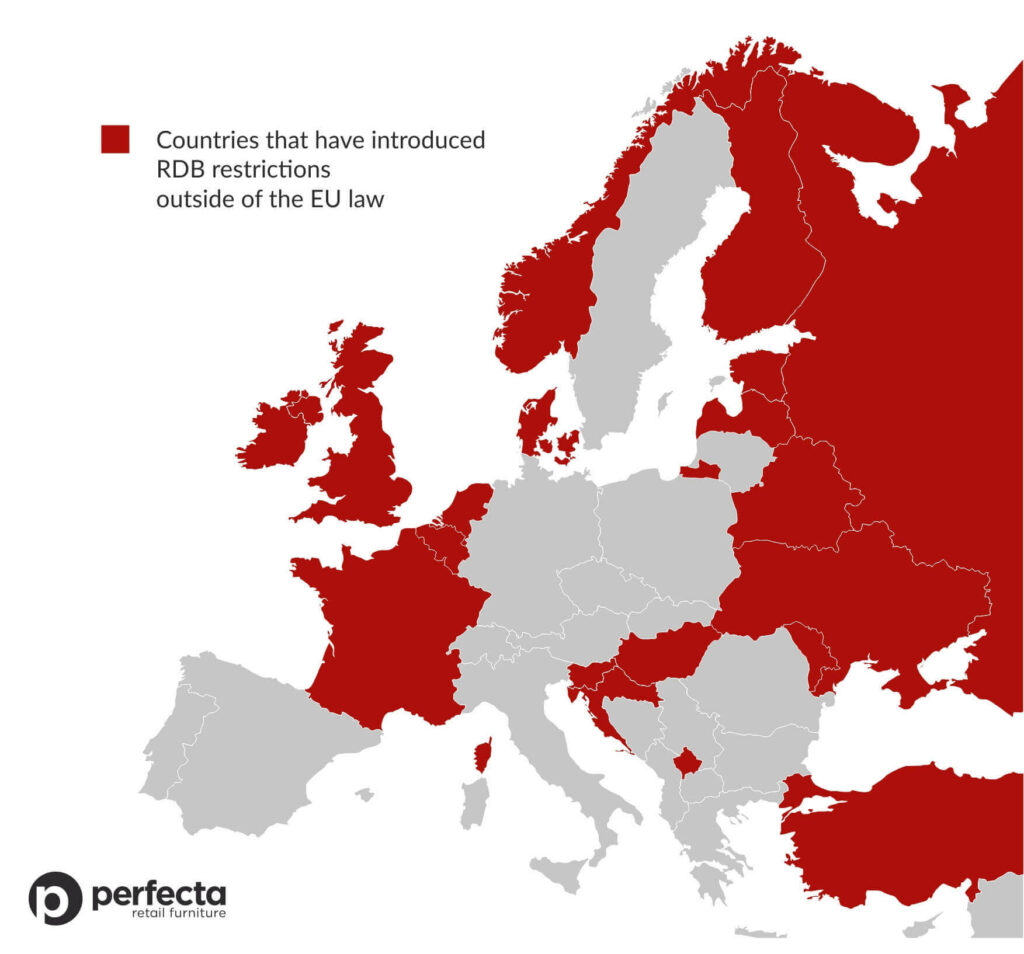
Interesting fact
The European country with the most restrictive RDB policy is the UK. There is a total ban on cigarette advertising in places of sale there. It is restrictive to such an extent that a special graphic design for packaging has even been introduced, which unifies the appearance of products of all brands (“plain packaging”). In addition, tobacco products remain locked and out of sight until the customer asks for them. Even then, however, the open area behind which the cigarette packs are placed must not be larger than 1.5 m².
The situation is completely the opposite in Germany. There, cigarette packets are well displayed and there are no restrictions on tobacco advertising at the point of sale or even on billboards.
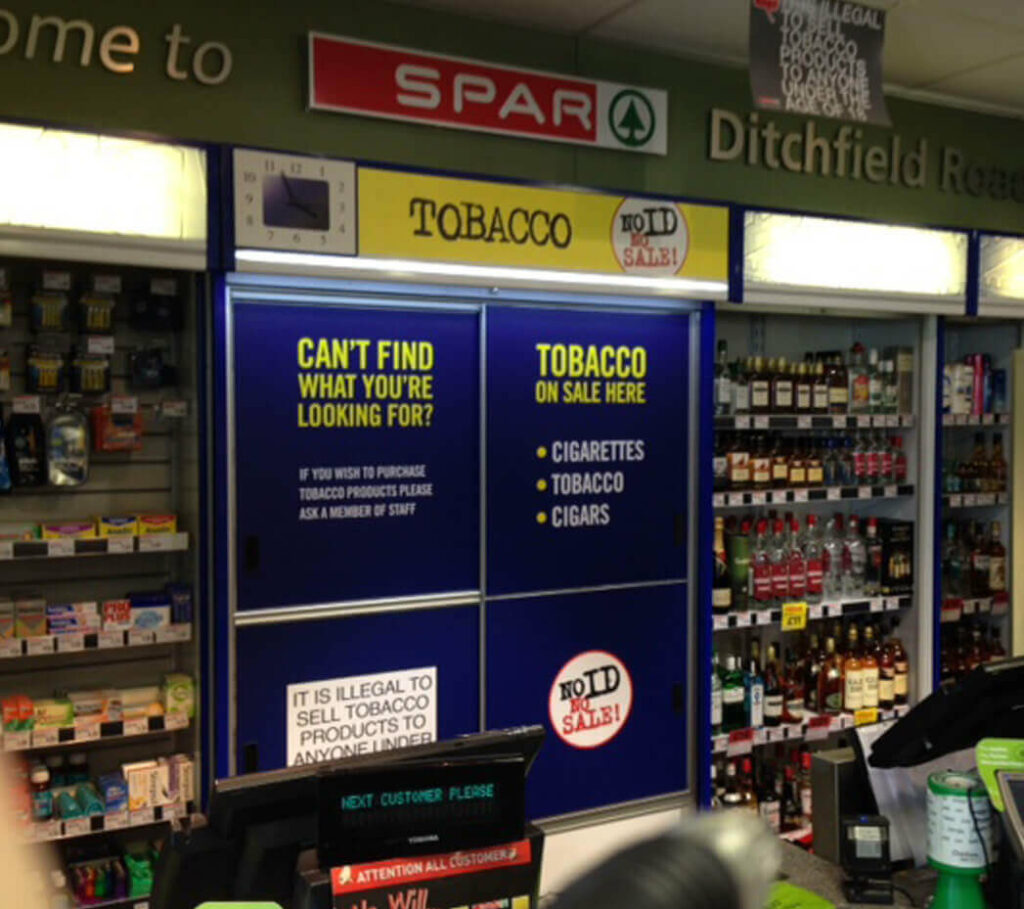
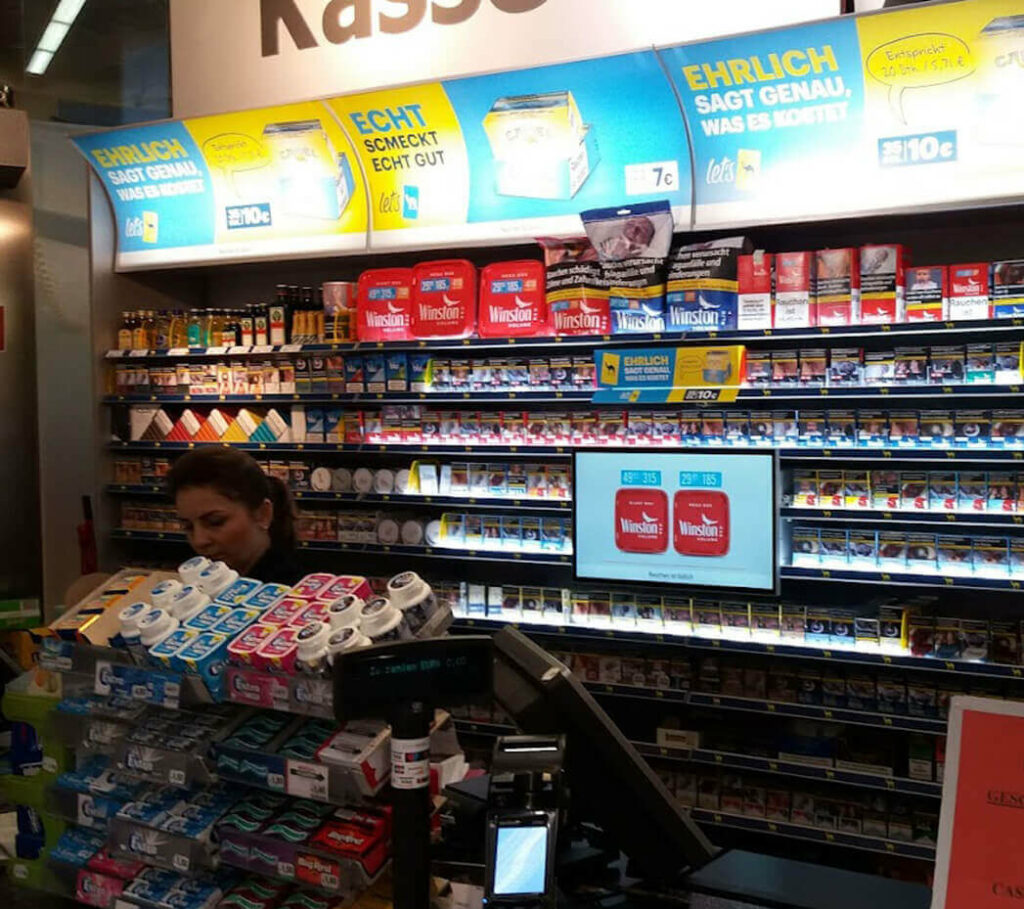
Regulations in Poland
So far, the Polish legislator has not decided to introduce more restrictions on trade in tobacco products, except for implementing EU directives banning the sale of menthol cigarettes, flavoured beads in filters and packs of less than 20 cigarettes.
Nevertheless, the situation in Europe leads us to expect that RDB will also come to our country. We expect this ban to be introduced in the next 2-3 years.
How to prepare?
As experts in the tobacco product POSM market, observing the growing trend of RDB in the world for 25 years, we have introduced many products prepared for RDB. In addition, the analysis of the legal situation in this area allowed us to prepare products for countries not subject to restrictions, which are already prepared to change this law.
This is a great saving, as a tobacco rack or tray in a shop can last from 2 to 5 years, or even longer for robust solutions such as larger tobacco cabinets.
Examples from our market
A good example of this is the Dino retail chain, which some time ago was looking for new overhead dispensers. We were able to convince our customer to think ahead and equip their shops with flap system dispensers. That way, when the anticipated changes in the law finally take place, the chain will be ready for them, and the staff will not have to get used to operating the new dispensers.
It is important to be aware that one of the requirements of the RDB is that the cigarette tray can only be opened for the moment when a packet of cigarettes is taken out of it. Consequently, the closing system must be robust and easy to operate. And this requirement is not met by roller shutters, which the standard overhead dispensers are equipped with.
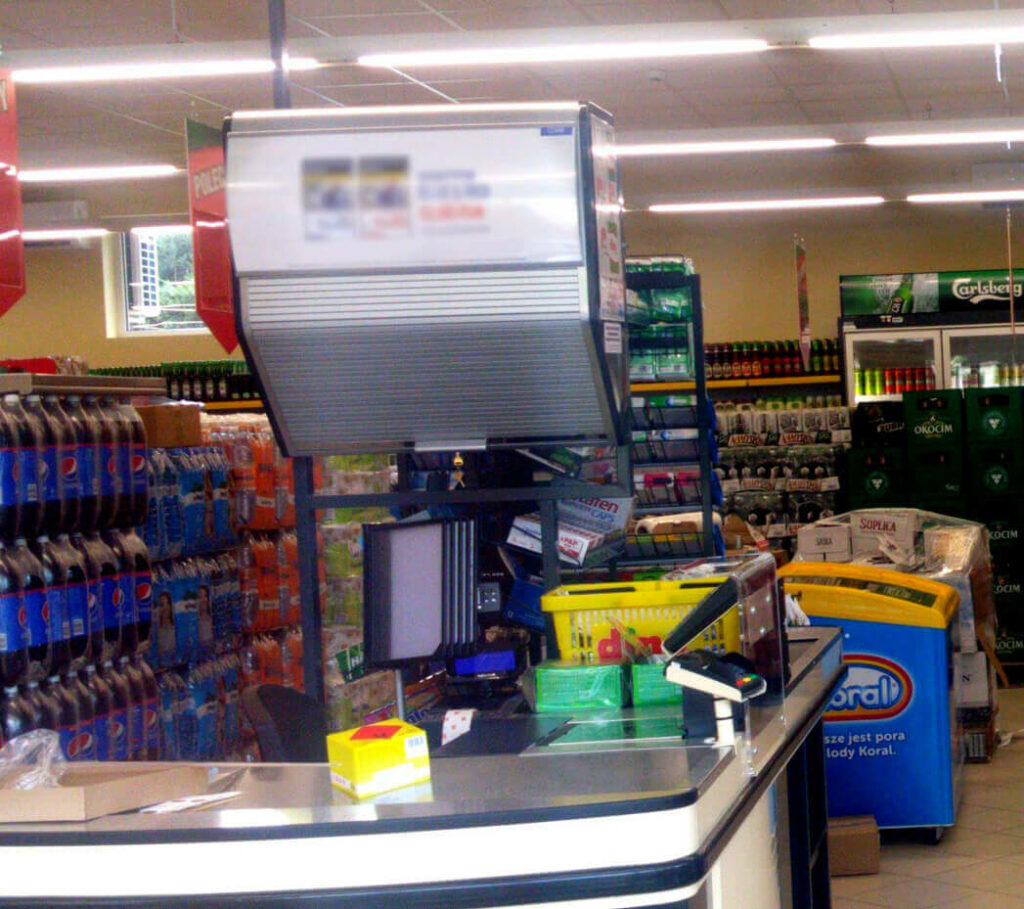
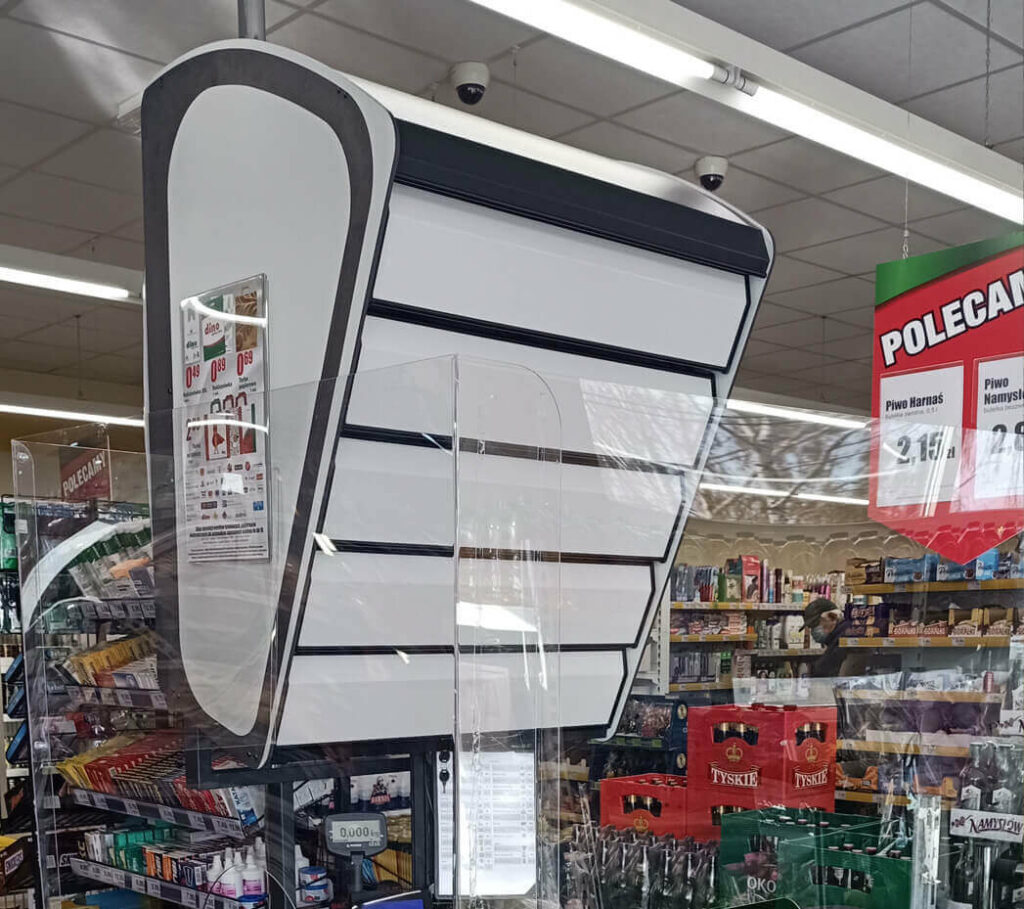
Another example is the EG Group, which manages gas stations in the Netherlands and other countries. When the cigarette racks set up behind the cash register were replaced, it was decided that they had to be adapted to RDB requirements. When the retail restrictions were finally introduced in the Netherlands, all it took was a brief service action, consisting of installation of sliding doors and shelves to make them meet the requirements imposed by the legislator. This not only saved money, but also time, as it only took the service team 15 minutes to install the sliding doors in the customised rack.
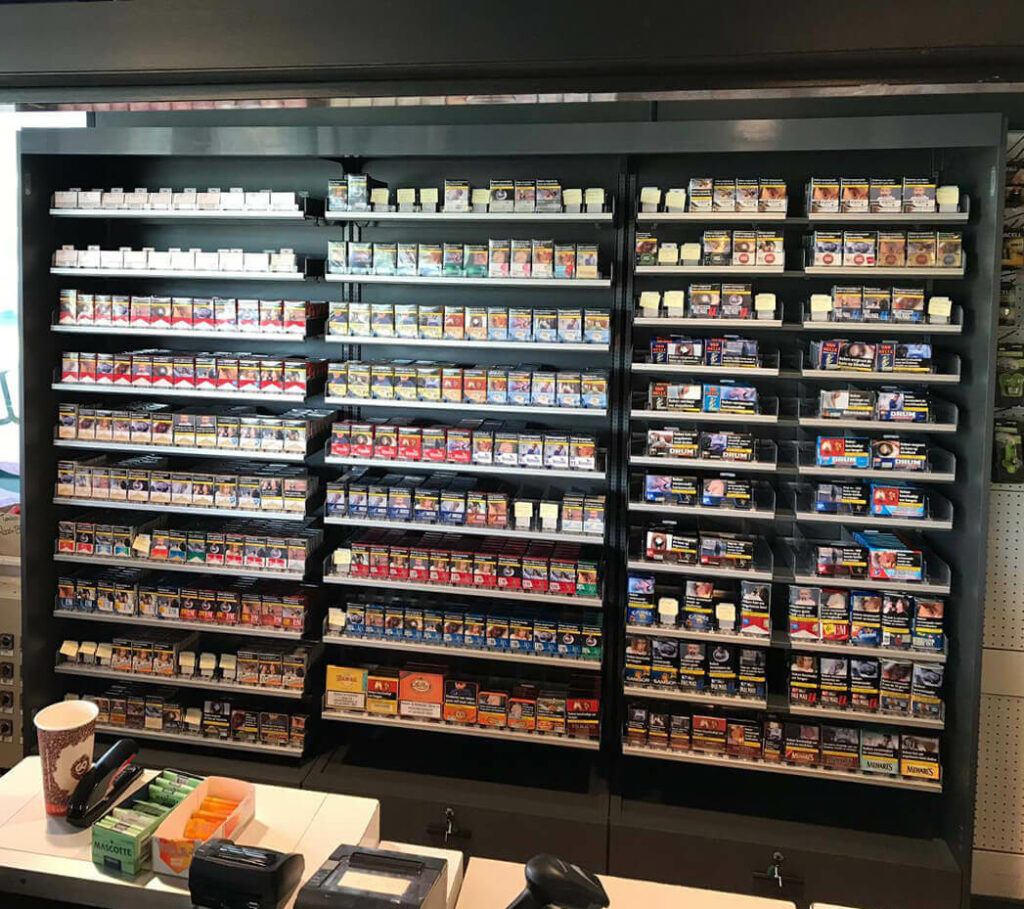
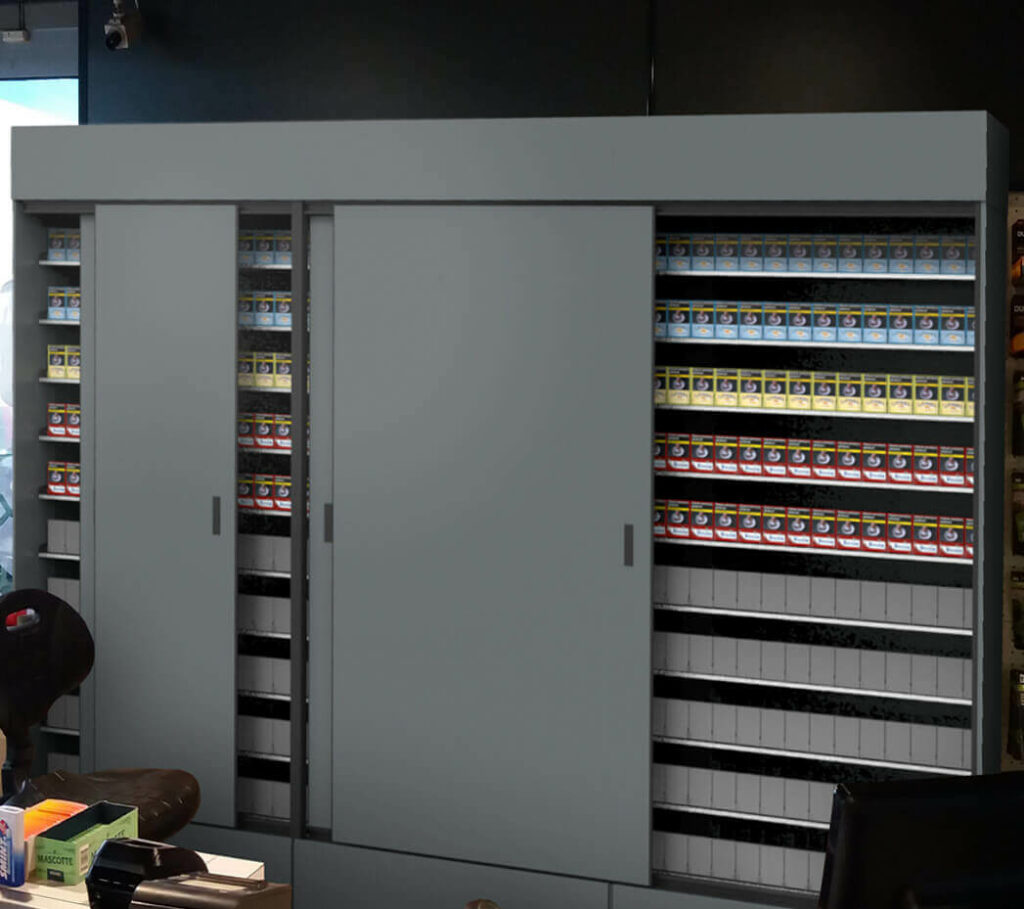
For the time being, there is no mention about the upcoming RDB in Poland. It is to be expected, however, that sooner or later – and the emphasis is on ‘sooner’ – we will also have these restrictions in place. The RDB systems offered by Perfecta are ready for these changes. And most importantly – until the RDB restrictions enter into force, our racks and dispensers can be used normally. And when the law changes – all it takes is one simple move of hand to be in compliance again.
It good to be ready for a change in regulations, as many of our clients have done.

